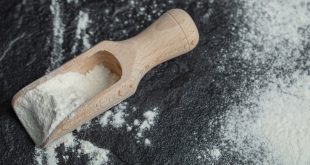Blocked drains in Southampton can be a nuisance, causing slow drainage, unpleasant odours, and potential flooding. While some blockages can be tackled with simple DIY solutions, others require professional help. The key to dealing with blocked drains is identifying the problem early, using effective methods to clear the blockage, and taking steps to prevent future clogs. In this guide, we’ll cover quick and efficient tips for clearing blocked drains Southampton and maintaining a smooth-running drainage system.
If you’re facing blocked drains in Southampton, click here for expert drain clearing services.
Common Causes of Blocked Drains in Southampton
Understanding what causes blockages in your drains can help you prevent future issues and tackle clogs more effectively. Here are the most common causes of blocked drains in Southampton:
1. Hair Accumulation in Bathroom Drains
Hair is one of the top culprits of blocked drains in the bathroom. It’s easy for hair to accumulate in the drain, especially in showers and bathtubs, where it combines with soap, shampoo, and oils, creating a thick, sticky mass. Over time, this mass can clog the drain, causing slow drainage or even complete blockages.
2. Food Scraps and Grease in Kitchen Drains
In the kitchen, food scraps, grease, and oil are often disposed of down the sink. While grease and oils may seem liquid at first, they solidify as they cool, forming a thick sludge inside the pipes. Food scraps can also get stuck, leading to gradual blockages. This is especially common in kitchen sinks that lack a waste disposal system.
3. Foreign Objects Flushed Down Toilets
Toilets can become blocked when non-flushable items, such as wet wipes, sanitary products, cotton buds, and even small toys, are flushed down. These objects don’t break down in the plumbing system and can easily cause serious blockages.
4. Tree Roots Invading Pipes
Tree roots are a common issue in areas like Southampton, where trees are abundant. Roots can invade underground pipes, searching for water. Over time, they can break into the pipes, causing blockages and damage to the plumbing system. This type of blockage can be tricky to identify, but it’s essential to address it promptly to avoid further damage.
5. Soap Scum and Limescale Buildup
Soap scum and limescale, particularly in areas with hard water, can accumulate inside pipes, narrowing the space for water to flow. Soap scum combines with minerals in the water to form a sticky residue, while limescale builds up over time, restricting water flow and causing clogs.
Signs Your Drains Are Blocked
Knowing the signs of blocked drains can help you take action before the issue worsens. Here are some common symptoms of a blocked drain:
1. Slow Drainage
One of the first signs of a blocked drain is slow drainage. If you notice that water is taking longer to drain from your sink, bath, or shower, it’s a sign that there is some kind of obstruction in the pipes. The problem may be minor at first but can escalate if left unchecked.
2. Bad Odours
Blocked drains often produce foul-smelling odours due to the build-up of food waste, grease, or stagnant water in the pipes. If you notice unpleasant smells coming from your drains, it’s time to investigate the cause and clear the blockage.
3. Gurgling Noises
Hearing gurgling or bubbling sounds from your sink, shower, or toilet could indicate a blocked drain. These noises are caused when air is trapped in the pipes due to a blockage, preventing water from flowing properly.
4. Overflowing Water
Overflowing water is a clear sign of a major blockage. If water begins to spill over from your sink, bath, or toilet, it’s a serious issue that requires immediate attention. An overflowing drain can lead to flooding and water damage.
5. Water Backing Up
If you notice water backing up into your sink or toilet, it’s another sign of a severe blockage. This happens when water cannot flow freely through the pipes, resulting in backup.
Quick Tips for Efficient Drain Clearing
If you’re dealing with a blocked drain in Southampton, here are some quick tips to help you clear the blockage:
1. Use a Plunger
A plunger is a great tool for clearing minor blockages, especially in sinks, toilets, and bathtubs. Place the plunger over the drain, create a seal, and push up and down several times to create suction. This can dislodge the clog and allow water to flow freely again.
2. Try a Drain Snake
If a plunger doesn’t work, a drain snake (also known as a drain auger) can be an effective solution. A drain snake is a long, flexible tool that you can feed into the drain to break up or remove the blockage. It’s particularly useful for clogs further down the pipe that the plunger can’t reach.
3. Boiling Water for Kitchen Drains
For kitchen drains clogged with grease or soap scum, pouring boiling water down the drain can help dissolve the clog. Grease, in particular, solidifies as it cools, and boiling water can help break it down, clearing the blockage.
4. Baking Soda and Vinegar Solution
For a natural and eco-friendly solution, try using baking soda and vinegar. Pour half a cup of baking soda into the drain, followed by a cup of vinegar. Let the mixture sit for 15-20 minutes to allow the reaction to break down the blockage. Then, flush the drain with hot water to clear any remaining debris.
5. Call a Professional Drain Cleaner
If the blockage persists or is particularly severe, it’s time to call in a professional. Drain cleaning experts have the tools and experience to quickly diagnose and clear the blockage, using advanced methods like high-pressure water jetting and CCTV drain inspections to ensure a thorough job.
Preventing Blocked Drains in the Future
While clearing a blocked drain is essential, it’s even better to prevent future blockages. Here are some tips to keep your drains clear and avoid clogs in the first place:
1. Avoid Pouring Grease Down the Sink
Grease, fat, and oils should never be poured down the sink. Instead, dispose of them in a separate container and throw them away. This will prevent them from solidifying inside the pipes and causing blockages.
2. Use Drain Covers
Installing drain covers in your sinks and showers is a simple but effective way to prevent hair, food scraps, and other debris from entering the pipes. Regularly clean the covers to keep them free from buildup.
3. Don’t Flush Non-Flushable Items
Only toilet paper should be flushed down the toilet. Items like wet wipes, sanitary products, and cotton buds should never be flushed, as they can easily cause blockages.
4. Regularly Clean Your Drains
Periodically clean your drains to remove any grease, soap scum, or food particles that may have built up. You can pour boiling water down the drains or use a natural cleaning solution like baking soda and vinegar to help keep your pipes clear.
5. Maintain Your Plumbing System
Regularly check your plumbing system for signs of wear and tear. If you have old or damaged pipes, they are more likely to develop cracks or leaks that can lead to blockages. Early detection and repairs can help avoid costly problems down the road.
6. Trim Tree Roots
If you have trees near your property, ensure that the roots are regularly trimmed. Tree roots can infiltrate pipes in search of water, causing blockages and pipe damage. If you suspect tree roots are in your pipes, call a professional to have them removed.
When to Call a Professional Drain Cleaner
While DIY methods can help with minor blockages, some situations require professional intervention. Here are a few signs that it’s time to call in a drain cleaning expert:
1. Persistent or Severe Blockages
If the blockage doesn’t clear after trying plunger or snake, or if it keeps recurring, it may indicate a deeper issue that needs professional attention.
2. Tree Root Intrusion
If tree roots are causing a blockage, a professional will have the necessary tools to remove the roots and repair any damage to your pipes.
3. Multiple Blockages
If multiple drains are clogged at once, this could indicate a more serious issue with your plumbing system, requiring professional diagnosis and repair.
4. Water Damage
If you notice water damage around your drains or in other areas of your home, it’s time to call in a professional. Water damage can be costly and cause long-term issues if not addressed promptly.
Conclusion
Blocked drains in Southampton are a common issue, but with the right knowledge and tools, they can be resolved quickly and effectively. Whether you’re dealing with slow drainage or a complete blockage, the tips in this article can help you clear the drain and prevent future problems. Regular maintenance, mindful habits, and professional services can keep your drains in top condition, saving you time and money in the long run.
If you need expert help with blocked drains Southampton, contact our team today for fast and efficient drain clearing solutions.
 Daily Blogger News Stay updated with the latest trends and insights. Your reliable source for daily updates and information.
Daily Blogger News Stay updated with the latest trends and insights. Your reliable source for daily updates and information.







